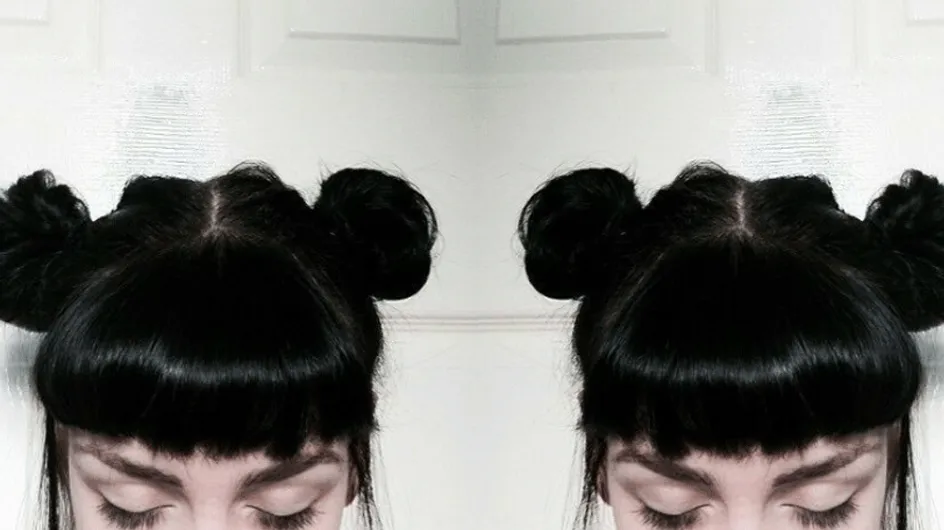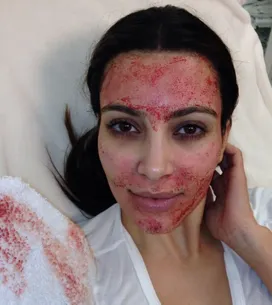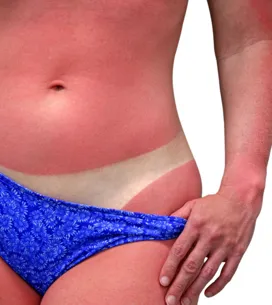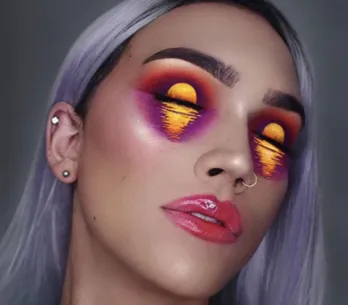If you suffer with a flaky scalp, I'm guessing you might be at least a little self conscious about it, right? But there's absolutely no need to be as you're certainly not alone, and fighting the flakes is a lot easier than you think. There are a range of solutions out there to combat it that don't just involve your bog standard anti dandruff shampoo.
So whip off that hat and rock your scalp baring braids with confidence, 'cos we're breaking the taboo and addressing the issue head on.
What exactly IS dandruff?
Basically, dandruff describes the small fragments (or flakes) on the surface of the epidermis on the scalp. In a normal cycle, the scalp renews itself about every 21 days, but when the process accelerates, this cycle lasts only five to seven days. The cells are then not ready to eliminate normally, which generates into those small white clusters we loathe.
There are a lot of misconceptions about this skin issue - the main one being that it's caused by a dry scalp but, my friends, it's actually the opposite, as dandruff can be caused by too much oil rather than too little. The pesky flakes are obviously found in the hair, but can fall onto your shoulders and clothes too, making them even more of a blush worthy nuisance.
Why do I have dandruff?
The exact reasons for the significant development of dandruff in some people are unknown. Bear with me while I get a bit technical here, 'cos what we do know is that a microscopic organism, known as the pytiriasis, is responsible for that abnormal acceleration of the renewal of the scalp.
Anything I need to avoid?
Excessive sebum, hair washing or brushing too frequently, stress, bad diet, fatigue or even simply a shampoo that's too chemically harsh all contribute towards promoting the acceleration of the epidermal cycle, and therefore cause dandruff. Contrary to popular belief, even though pytiriasis prefers greasy hair since it feeds on fatty acids, it also develops on dry hair too.
There are TWO types of dandruff. Wait, what?
Uh huh honey, and it's important to distinguish between the two in order to pick the right treatment.
Dried dandruff: This is the most common and usually affects naturally dry and normal scalps. In this case, it is a natural phenomenon that appears after drying of the skin. We recognise this type of flakes because they fall easily on to the shoulders, so anti-dandruff shampoos are therefore not really suitable. Eek!
If you suffer from this type, unfortunately anti-dandruff shampoos are therefore not really suitable, as you have to be super careful not to irritate the scalp. Anything with tea tree oil in is a wonder for dried dandruff, try Paul Mitchell Tea Tree Lavender Mint Moisturising Shampoo or a nourishing shampoo like The Body Shop Ginger Scalp Care. A treatment for dry hair may also be appropriate.
Greasy dandruff: This tends to remain attached to the hair and most often affects greasy hair. To treat it try a mild shampoo, especially an organic or herbal hair cleanser, it's particularly important to leave the shampoo in for at least five minutes before washing it out.
The NHS suggests to look out for shampoos containing ingredients: zinc pyrithione, salicylic acid, selenium sulphide and ketoconazole - maybe write them down before heading to the beauty store!
What are the best solutions?
While stress is a major cause, we still unfortunately can't all jet off to The Bahamas for a month, so try these helpful hacks instead:
Anti-dandruff lotions and shampoos can be a helpful dandruff combatting tool as they block the cycle of cell proliferation. They should be used once or twice a week and applied before bedtime to work their magic overnight.
Washing and disinfect your brushes and combs regularly to reduce any nasties or build up and prevent you from reinfecting the scalp.
Try a home remedy so good even your Nan would approve: After the shampoo, make a rinse with two tablespoons of vinegar or cider, and two drops of essential oil of thyme. This super cheap mixture will also make your hair glossy at the same time as cleansing your scalp so it's a win win.
Treat yoself to a salt massage. Stimulate the blood circulation of the scalp and eliminate dandruff by massaging with a handful of fine marine salts used for cooking. Perform this massage twice a week before washing your hair normally.
If you've tried all these tips over a six month period and are still experiencing persistent problems, don't hesitate to consult a dermatologist. It's also good to bear in mind that dandruff is not the cause of hair loss, if you have a hair loss problem, it's best to visit your GP for advice and treatment.
You Might Also Like:
Give Frizz The Middle Finger! The Best Hacks For Frizzy Hair













